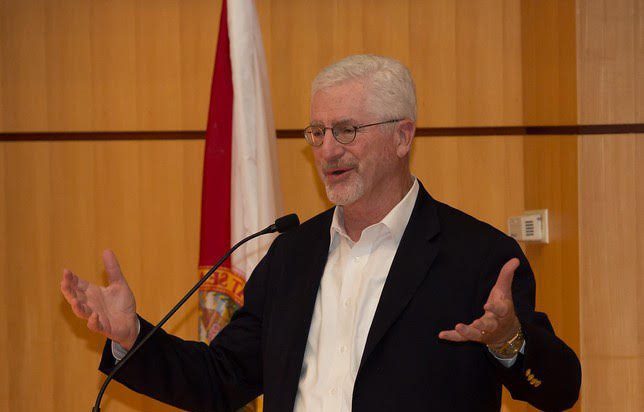From dangerously hot days to rising sea levels and increasingly treacherous hurricanes, South Florida is vulnerable to the most acute effects of our changing climate.
Boca Raton-based Coastal Risk Consulting has developed a platform called RiskFootprint to promote climate resilience by arming property owners with data-driven environmental mitigation strategies.
“We are here to help individuals, businesses, and governments make their buildings more sustainable and resilient,” Coastal Risk Consulting’s President, Albert Slap, told Refresh Miami. “We don’t sell insurance, we don’t sell real estate, and we don’t sell your information.”
Users input an address and, less than a minute later, RiskFootprint generates a roughly 10-page report detailing the major climate risks related to the property and its surrounding neighborhood.
The risks are divided into two categories: today’s risks and risks in 2050. Types of risk include storm surge, FEMA, extreme heat, and extreme rain. These subcategories are each designated as a green (low), yellow (medium), or red (high) risk. These broad categories allow for consumers to understand their topline risk profile, but RiskFootprint also provides a page of detailed information for each vertical.
“Our goal is resilience, not a score for someone to forget about,” said Slap, pictured above. “A score doesn’t tell anybody what to do next.”
RiskFootprint stands apart from its competitors because of the focus on making this crucial information actionable. In addition to the report, Coastal Risk Consulting’s expert team also offers RiskFootprint customers a one-on-one consultation to help them interpret their climate analysis and strategize on next steps.
Slap said that this hybrid digital–consulting offering is particularly valuable for RiskFootprint’s corporate clients, such as asset managers who require a climate analysis to inform their decision making processes.
Another key factor that makes RiskFootprint unique is that it provides climate insights at the community level. “We’re the only ones that not only give you information about the address, but also the neighborhood within half a mile,” Slap asserted.
Understanding the challenges facing a neighborhood is crucial to make a smart, holistic investment decision, said Slap. He explained that for some communities in our region, this will be an uphill battle: “If they don’t do anything, some smaller communities are not going to do well.” While these smaller communities will be facing dire climate risks similar to Miami or Miami Beach, Slap underscored that “they’ve got some heavy lifting to do” because of their smaller size.
RiskFootprint has its sights set on going global. According to Slap, the startup’s “clients are saying, ‘how soon can you get us this report for the UK? For Latin America?’” The difficulty, however, is finding and procuring the best databases required to maintain the team’s rigorous standards. “We don’t just take a database because it’s out there,” said Slap, explaining that part of Coastal Risk’s ten-person team vets each data source before integrating it into their report.
Before starting Coastal Risk Consulting, Slap spent forty years as an environmental trial lawyer and law professor. In late 2014, he got together with two climate experts – Dr. Leonard Berry, former director of the Center for Environmental Studies at Florida Atlantic University; and Dr. Brian J. Soden, Professor of Atmospheric Sciences at the University of Miami – to develop what would in 2016 become RiskFootprint.

- AI, climatetech and healthtech reign supreme on Day 1 of eMerge Americas’ 10th anniversary - April 18, 2024
- Brought together by tech, kept together by culture: Miami’s protagonistic role in LatAm’s startup story - April 15, 2024
- New World Angels launches Innovation Fund to write pre-seed checks - April 12, 2024





